#soviet science fiction
Text

Cosmic Journey | 1936 — Kosmicheskiy reys
#Kosmicheskiy reys#Космический рейс#Vasily Zhuravlyov#science fiction#practical effects#soviet science fiction#stop motion animation#Ksenia Moskalenko#outer space#hammersmith horror#moon landing#moon#silent film
208 notes
·
View notes
Text
"The first North American science fiction magazine, Amazing Stories, appeared in 1926. Since only a handful of science fiction writers existed in the United States at this time, all of them inferior to the best in Europe which had had a much longer tradition of science fiction, Amazing Stories had to make do with reprinting mostly old French, German, and British science fiction, and The War of the Worlds was once again published in August 1927 issue, starting a flood of American monster tales that was soon to deluge their science fiction. This is where the typical science fiction monster is born, rearing its slimy tentacles against an unsuspecting world, seemingly born only to drag the shrieking heroine round the universe with the square-jawed heros in hot pursuit. Wells and others had given some purpose to their monsters, whether satirical or critical or to explore different modes of existence, but the monsters that now deluged science fiction, at least in the United States, had no purpose whatsoever than offering cheap thrills.
Borrowing heavily from Western and Gothic tales, updating the aliens only by more tentacles and moving them out into space or letting them come to Earth from space to do their evil deeds (while, at the same time, noble Earth heroes murdered loathsome alien creatures on their home worlds), American science fiction magazines preached the gospel of uninhibited violence. Once again, as in the Gothic and simplistic Wild West tales, we have the externalization of evil, the pure black and white of fairy tales, only this time in a pseudo-scientific setting, vulgarizing all those works of science fiction from which the ideas came.
Until the advent of Amazing Stories, science fiction had been enjoying a good reputation as a useful tool for social criticism and also for its literary quality; this flood of pseudo-scientific poorly written tales, abounding in racism, violence, puerile sex and crude views of society, soon destroyed the last vestiges of that reputation in the English speaking world. Science fiction became ‘that Buck Rogers stuff.’ The mushroom men of Mars emerged triumphant from the carnage ... they became the dominant archetype of mid-20th American science fiction, and heavily influenced or reshaped completely the European, Latin American and Japanese genres as well.
The works that depicted extraterrestrials not as monsters, but as individual beings and definite personalities, not evil, but different were few and far between....Stanley G. Weinbaum’s debut A Martian Odyssey (1934) descended like a ton of bricks...One of my favourite stories of monsters, though not extraterrestrial, and certainly one of the most chilling examples, is a short story, Mimic (1942) from Donald A. Wollheim.... Wollheim’s remarkable insect - and the even stranger predators that feed upon it in the modern cites - is just a strange creature trying to survive, far removed from the kind of murderous aliens and monsters sadly common elsewhere...[a photo caption also praises the “non-bastardized first Japanese Godzilla film as another, surprisingly nuanced example - of the monster as punishment for human hubris.”]...[but even in the best works of this period] generally only humans are really worthy of respect, they steal and loot and kill with impunity, and only collaborating aliens are good aliens.
It is interesting to compare this attitude towards extraterrestrials, usually murderous and at best patronising, with developments in Europe, particularly the emergence of the new super power, the Soviet Union. The Soviet Union had not quite the American tradition of pulp magazines of the cheap Amazing Stories sort, nor the tradition of Wild West stories, from which the deluge of bad American science fiction writers got most of their inspiration. What the Soviet writers had inherited, and this was almost as suffocating, was the Utopian tradition from the Revolution, the demand that science fiction should be first didatic and educational and only secondly entertaining. This was in contrast to the demands of American magazine editors, that popular fiction should be entertaining, and nothing else.
Another fault in common with both the Soviet and the American example was the emphasis on vulgarized political ideas. In America science fiction of this period advocated free enterprise and Capitalism; the Soviet counterpart advocated Communism and collectivism. Extraterrestrial visitors in Soviet works of this time usually exemplified either the dangers of Capitalism or the blessings of Communism. And some of these hated Capitalist monsters were just as richly endowed with tentacles as their Western anti-Communist parallels. (The word ‘Communism’ was seldom used in American works when describing monster and alien civilizations, but the many descriptions of insect-like communities, blind obedience to leaders and de-individualized lives are very revealing.)
The hate expressed towards the aliens particularly in American science fiction, however, is very seldom found in Soviet science fiction of this time. Novels such as M. Prussak’s Gosti zemli (Guests of Earth), A. Volkov’s Chuzhiye (The Alien Ones), and I. A. Bobrichev-Pushkin’s Zaletnyy gost’ (The Guest Who Came Flying) are typical examples of aliens visiting Earth not as enemies but as strange guests, bearing tidings from sometimes incomprehensibly different worlds. One of my personal favourites is a later short story by Marietta Chudakova, Prostranstvo zhizhni (Life Space, 1969), describing a strange man who might or might not come from another world or another dimension or another time, whose life span is limited not by time but by space. As he grows older, the area in which he can move gets smaller and smaller until he finally dies when he inadvertently steps outside his life space. It is a strangely moving story, giving hints of a life enormously different from ours. [And earlier Lundwall praises Arkady and Boris Strugatskiy’s various works related to the alien and the Other...]
Apart from obvious political reasons for the abundance of horrible monsters attacking civilization during the ‘golden years’ of American science fiction up to the mid-1950s, the principle of which was attained with a particularly nasty film, Invasion of the Body Snatchers (1956), where monsters from outer space try to create a new world order in which everybody is equal but, of course, are finally defeated and exterminated by the hero and the military, one of the main reasons for the sorry state of things must be the fact that most American writers were reared on the local cheap fiction magazine tradition, which called for WASP heroes, villains easy to hate, and simple sexual interest, with lots of gore naturally. Science fiction in the United States faithfully followed the pulp magazine formula, as witness the greatest names and influences of the time - Edgar Rice Burroughs, E. E. Smith, Edmond Hamilton, and many others. Another issue was that, while some magazines were edited by people who might have loved science fiction, they had to bow to publishers who wanted nothing but fast profits [and] monsters and wild adventures and gore always sold...
The Soviet Union did not have these particular problems; instead, science fiction authors and editors had to keep a wary eye on the various politruk who thought that science fiction should try to solve technological problems of the near future, as well as presenting readers with ‘positive’ heroes. This was the time, according to a story by Soviet science fiction author Nikolai Tomas, when ‘fantasizing was allowed only within the limits of the Five-Year Plan for the national economy.’ American authors had blood-sucking publishers and over-worked editors to cope with; their Soviet counterparts had the Commissars. The difference - and here I am speaking as a citizen of a non-aligned nation which nevertheless was exposed to the various offerings of this time - was that the producers of American science fiction were exporting their junk. The ones in the Soviet Union and other socialist countries kept their junk for themselves. Only the best Soviet science fiction sneaked out, and those generally offered few monsters and very little preaching. Over the Atlantic, science fiction offered both in ample measure.
Starting in the early 1960s, this slowly began to change, with a new generation of urgently needed editors and writers producing works with a markedly changed attitude towards extraterrestrials and other monstrous beings...”
- Sam J. Lundwall, Science Fiction: An Illustrated History. New York: Grossett & Dunlap, 1977. p. 111-114.
[AL: Lundwall was a Swedish science fiction writer and critic, and his history, as old as it is, is still valuable because of his knowledge of Soviet, French, German, Latin American and Japanese science fiction of the time. His account is markedly different than the often parochial, self-aggrandizing and American-centric histories written in the English world at the same time. It was certainly eye-opening when I read this many years ago in middle school.]
#extraterrestial life#extraterrestrial#science fiction#sf#pulp fiction#science fiction magazines#pulp magazines#amazing stories#soviet union#soviet science fiction#cold war#coldwar#literary criticism#literary quote#critical review
27 notes
·
View notes
Text
In One Hundred Years
In One Hundred Years
In One Hundred Years (A New Year’s Fantasy)
On the eve of the new year of 2023, the Great Worldwide Soviet Republic communicated by radio with the nearest republic on the planet of Mars, inviting delegates from the latter to a celebration and receiving, in turn, an invitation from the Martian Republic.
Earth assigned a total of 415,000 delegates from its five parts, while Mars assigned 630,000…
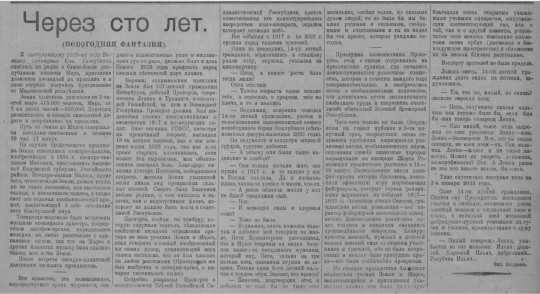
View On WordPress
#Article 58 (RSFSR Criminal Code)#Great Terror#Krasnaya Zvezda (newspaper)#Lenin cult#New Year&039;s#Soviet science fiction#Soviet utopian literature#Vasily Andreyev (Russian Soviet writer)
0 notes
Text

Stalker (1979) - dir. Andrei Tarkovsky
#andrei tarkovsky#stalker#soviet cinema#science fiction#scifi#cinema#surrealist cinema#arthouse cinema#movie scenes#movie gifs#film gifs#cinematography#sand dunes#dunes
535 notes
·
View notes
Photo
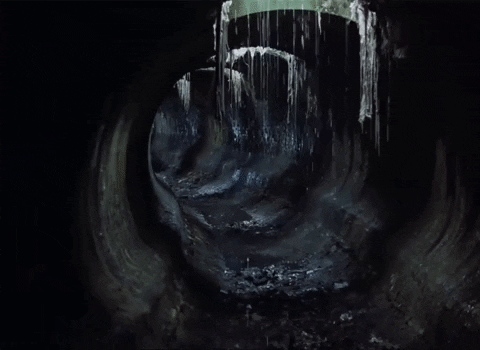
#Сталкер#Stalker#1979#Andrei Tarkovsky#tunnel#Soviet science fiction art film#70's#70s#urbex#sewage#wastewater#my gif#gif#my edit
1K notes
·
View notes
Text


Soviet Capsule, You Only Live Twice (1967)
#you only live twice#spaceship#space capsule#soviet capsule#soviet union#scifi#science fiction#bondedit#gif#jamesbondedit#GIF#my gifs#youonlylivetwiceedit#scifiedit#filmgifs#filmedit#60sedit#you only live twice rewatch#bond-a-thon#bond a thon#Hide and Queue
82 notes
·
View notes
Text


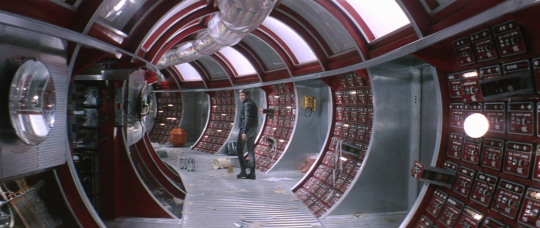


Solaris (1972)
Director: Andrei Tarkovsky
Cinematography: Vadim Yusov
Production Design: Mikhail Romadin
#cinematography#film stills#visual storytelling#solaris#solaris 1972#andrei tarkovsky#scifi#science fiction#70s scifi#70s cinema#russian cinema#soviet cinema#russian scifi#soviet scifi
334 notes
·
View notes
Text


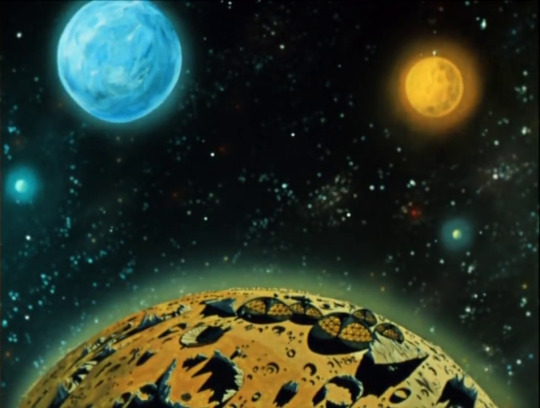
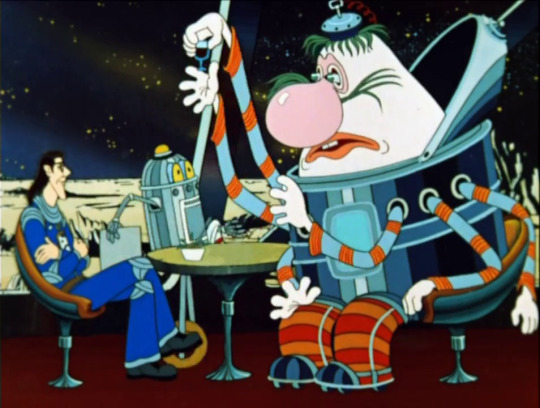
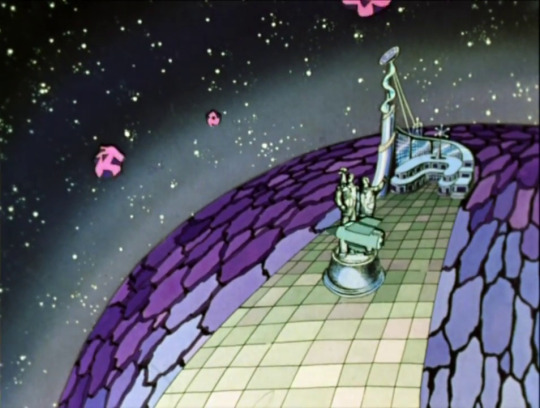
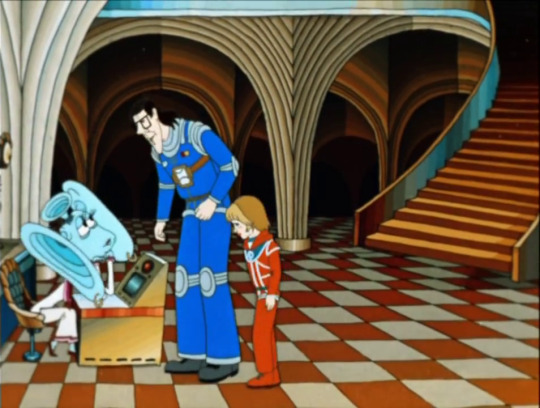


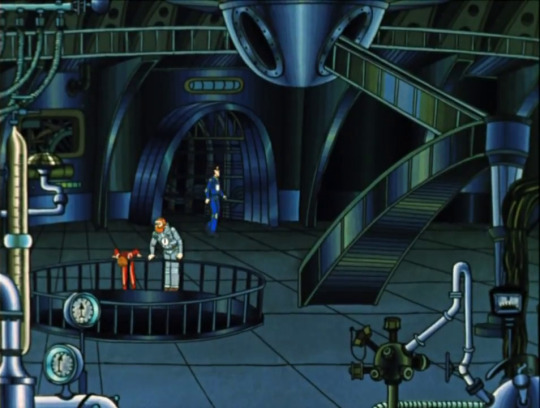


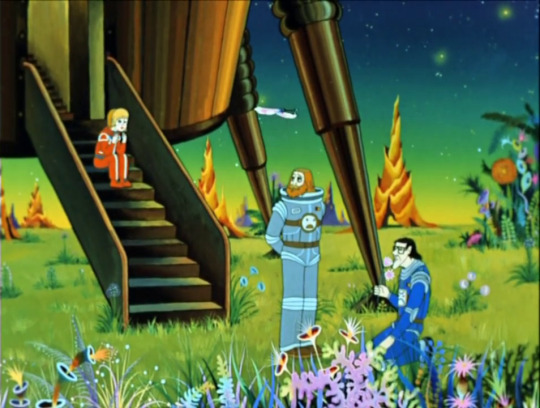


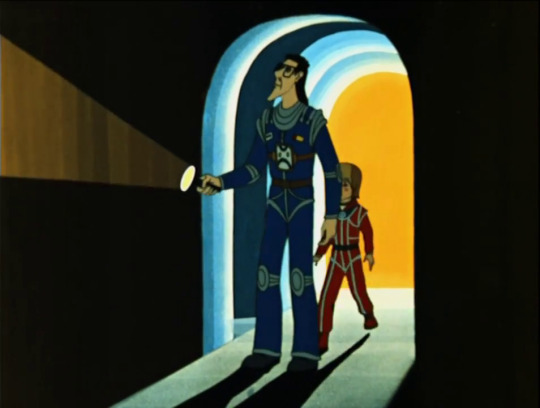

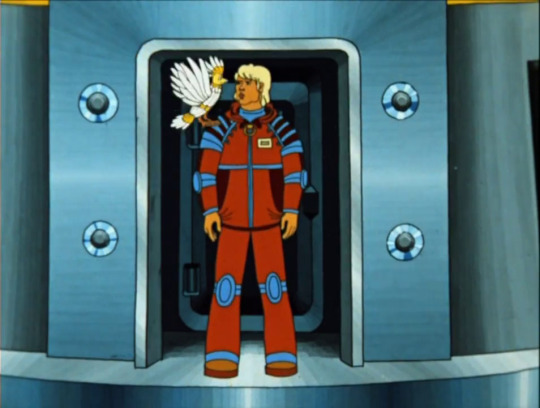
The Secret of the Third Planet (1981)
#The Mystery of the Third Planet#The Secret of the Third Planet#Тайна третьей планеты#soviet animation#science fiction#sci fi#animation#film screencaps#movie screencaps#animated film#Roman Kachanov
80 notes
·
View notes
Text
Futuristic Ekranoplan Ground Effect Flying Craft - Pt 3



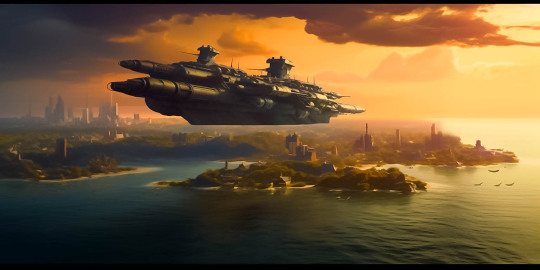


#soviet#groundeffectplane#ground effect#yan61#YAN61#bartini#ekranoplan#bartini beriev#vva-14#caspian sea monster#midjourney#ai artwork#generative art#aiartcommunity#science fiction art#sci fi art#spaceship#spaceships#retrofuturism#retro futurism#scifiart#aviation
42 notes
·
View notes
Text

Aelita: Queen of Mars
"Aelita (Russian: Аэли́та, pronounced [ɐɛˈlʲitə]), also known as Aelita: Queen of Mars, is a 1924 Soviet silent science fiction film directed by Yakov Protazanov and produced at the Mezhrabpom-Rus film studio. It was based on Alexei Tolstoy's 1923 novel of the same name. Nikolai Tseretelli and Valentina Kuindzhi were cast in leading roles."
https://en.wikipedia.org/wiki/Aelita
8 notes
·
View notes
Text
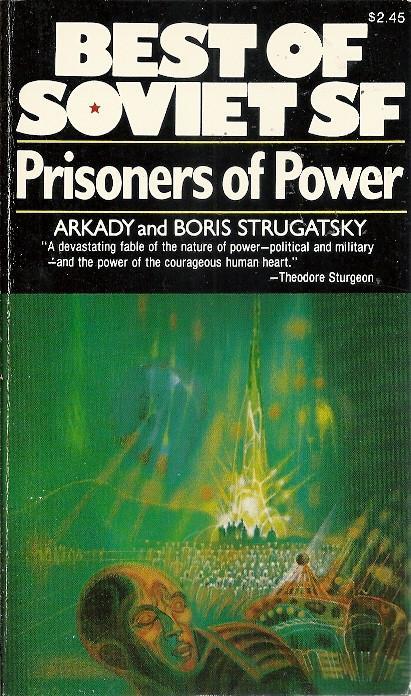
Vintage Paperback - Best Of Soviet SF: Prisoners Of Power by Arkady And Boris Strugatsky
Collier (1978)
#Paperback#Paperbacks#Science Fiction#Soviet Union#Paperback Cover#Arkady Strugatsky#Boris Strugatsky#Vintage#Art#USSR#Collier#1978#1970s#70s
24 notes
·
View notes
Text

Venera 70.
20 notes
·
View notes
Text
Report from the Ministry of Internal Affairs
October 21st, 03:21:00, 1983
Zablud fiddled with his cuff, the rough cloth caught on the bracelet of his watch. He watched himself perform the task with tired eyes, rubbing them slightly when he finished, feeling the tips of his fingers dampened from the sleep coating his eyes. He had slept poorly, both due to sleeping with a stomach solely filled with vodka and two slices of stale bread, but, more pressingly, how the evening had ended.
Shigemitsu’s… drunken affections weighed heavily on the rabbits mind, as did the taste on his lips, thankfully muzzled by the mint of toothpaste. It should be stated, of course, that Zablud was not averse to the affections of either sex, often seeking out both in equal measure as Iveshnya had correctly noted. It was the matter that that affection was not meant for him, as was plainly clear by the pining words of the drunkard himself… And with that, what brought dread to the Muscovite was how Shigemitsu would react, as Zablud knew he was not viewed fondly by the man and dreaded how that view would worsen after this.
It was not as if he could avoid his erstwhile escort.
He grabbed his things then opened his door, dreading seeing the other man open his as he did. Thankfully, he was spared for the moment. He walked down the corridor, the space filled with stagnant, chill air disturbed only by Zablud as he strode to the stairwell. When he left the building he saw Shigemitsu by the car, seeming to have gotten up earlier than usual. Zablud worried that he had not even left the car at all, but breathed a silent sigh of relief as he saw him wearing fresh clothes. He approached the car, trying to keep a semi-confident air about himself.
“Sorry if I kept you waiting, I didn’t hear you get up,” Zablud greeted apologetically. Shigemitsu didn’t respond, keeping silent as he moved to start the car. Zablud kept the silence for a moment as he steadied his courage, “about yesterday,” he began, his jaw tensing as he spoke but he was cut off by the bakeneko.
“Sorry, I don’t really remember much from yesterday. I drank a bit too much,” he cut of sourly, placing two fingers to his temple and pressing hard, Deriabin assuming he had a hangover. “Did something happen I should know about?” he asked cooly, not turning to his passenger as he did.
“Ah, no, not really,” Deriabin answered, quickly taking the first out he was given, “I just wanted to see how you were after all those drinks and all…” he trailed off, hiding his relief at his belief that Shigemitsu had forgotten.
“Right,” Shigemitsu breathed, glaring ahead with a cold stare as he started the car a cruel look blistering within his yellow eyes like boiling ice. Through the drive Deriabin watched the scenery pull by, still in thick darkness, their silhouettes moving in a silent waltz. Shigemitsu seemed colder than usual. The pair rarely talked through the drive, the driver not particularly given to conversation with his passenger, but it seemed… worse, today. Deriabin felt unwelcome, an enemy of the people in the small nation of the Invalidka.
He thought it might be due to the hangover, leaving the man to the silence, subconsciously trying to distance himself from Shigemitsu as he did and not smoking. He didn’t want to risk getting on his nerves. They arrived at the garage slightly earlier than usual, Shigemitsu refusing Deriabin’s offer of help with the door as he shut his car away. He watched the man silently for a moment before turning and beginning to make his way to work, wanting to escape the uncomfortable atmosphere that he refused to understand. He lit a cigarette and began smoking it as he walked, the smoke climbing up in a twisted tower with Deriabin’s frosty breath, his hand shoved into his pockets as he stared ahead down the lane, surrounded on either side by skeletal structures looming like skinned titans over the grounds. He came up to the ministry building, noticing two more guards than usual stood near the checkpoint kiosk. He reached for his documents as he approached the kiosk, smiling kindly at the quartet of militsaya.
“Good morning, comrades,” he greeted pleasantly, a wisp of smoke falling from his lips.
“Good morning citizen,” one of the new guards answered, stepping forward to take the documents. They were of a broad figure, with broad shoulders and a boxy chest, their hands almost clawed and seemingly formed of impossibly black ink, somehow soaking up the light that struck its surface, the same could be said for its face, or at least what was not hidden under a peaked cap and a bandanna of bandages that smothered the bottom of his face. He scanned the document, his black face obscured by shadow as he looked down, concealing what little detail their could be of his face. “You may go through,” the man declared after a moment, shoving the documents forward for Deriabin to take.
“Thank you, Comrade,” he answered to the unknown officer, walking past the kiosk towards the building, trying to ignore the watching eyes of the armed guards that were pinned onto him from every angle as he came forward. Thankfully, as he entered the building the gazes lessened, turning back to the outside world as their hands rested on their carbines and pistols.
Deriabin made his way up the stairs to the office floor, a few people walking up with him giving morning greetings which he warmly returned, smiling his handsome smile. As soon as he got to the office he walked over to his desk and sat down flicking the ashes of his cigarette into the tray next to him as he pulled a few documents towards himself as to look busy while he settled down for the day’s work. He saw Shigemitsu walk in shortly after, his expression still grim, glaring frostily at the rabbit for a moment as he entered before looking away and limping to his desk. Deriabin bowed his head, refusing to accept that he knew the reason why, preferring to feign ignorance, even in the absence of bliss.
He went through his work as normal, thankfully not having any documents that needed to be brought to Iveshnya, or given to Volkov and taken to the archive directly. Just after midday, the time of day where people would count the minutes until they would go to lunch, someone new walked into the room.
They were a tall individual, similar to Volkov in stature, though far bolder in their presence. They were broad shouldered, dressed in a dark red suit over a black shirt which held a prominent chest, puffed up with solid confidence. The most striking feature was of course was that she was a Cerberus. Three wolf-like heads loomed from her shoulders, each scanning the room with black, ringed eyes. They had blueish-black fur contrasted with white, with lipstick subtly decorating their lips occasionally parting to reveal the menacing fangs that hid within trifecta of jaws. As she took a few steps further into the room, the hem of her rule-of-thumb length jacket fluttered slightly as she walked on red high-heels. A few members of the office began to stir as she scanned the room, unsure of how to react the intrusion.
Before any of them could make a move, Iveshnya walked into the room, wearing a black double-breasted suit, similar to the interloper Cerberus, over a powder-blue shirt worn with a simple white and blue chequered tie. The clerks who were uncertain felt a surge of confidence at the arrival of their supervisor, an interceptor to deal with the perceived invader. He strode over to the woman and nodded to them politely, “Good afternoon, First Deputy Chairman Berlioz,” he greeted flatly appropriating some respect to his tone as he spoke. The silent audience seemed to judder at the greeting, and the fact it likely entailed.
“Yes, Comrade Ivesha,” she replied in a loud voice, calling her subordinate the wrong name, “I’ve made a brief inspection of the directorate and things seem to be running generally fine.” she answered, making a show of inspecting the room with two of her heads as she placed her hands on her hips. Iveshnya simply nodded in agreement as he stood close by. “There is one area of concern however,” she began, drawing out her words like a procurator giving sentence, “you conduct as of late.” Her voice was firm yet grave as she made the accusation.
“My conduct, First Deputy Chairman?” Iveshnya repeated unemotively, meeting her gaze calmly.
“Yes, I am referring to your recent absence that left this directorate both leaderless and near stagnant,” Berlioz declared heavily, the wicked smiles on her lips falling into accusatory frowns. The room chilled around the confrontation, the staff, all but a few meters away, suddenly felt like the audience in a grand coliseum, watching a tiger fight a pack of wolves with bated breath.
Iveshnya did not react, holding his superior in level gaze before responding in a dull tone, “I apologize for my recent absences, but they pertained to a matter of singular importance. As I am sure that you yourself are already quite aware,” a flicker of power flaring as he turned his eyes coldly up to the Cerberus. She smiled cruelly in response, seeming to draw up higher to the ceiling as he dark from smothered the light.
“I think further explanation would still be in order, Comrade Ivesha,” she continued menacingly, stooping over the man as she held her hands behind her back.
“I don’t think it wise to discuss it here,” he replied fearlessly, speaking in a relaxed pace as the room shivered, feeling they were now the target of the conversation. Berlioz remained silent for a while, leering menacingly down as the room choked in fear.
Then she suddenly relaxed and pulled back up, laughing brutishly with a look of mirth on her face. She laughed heartily for a moment before slapping Iveshnya on the shoulder, “correct, correct! Ah, you are always so stiff Ivesha,”
“‘Nya’,” Iveshnya stated flatly, causing the official to pause, an irate look on her face.
“Pardon?” she asked critically, a snarl pulling up the fangs in each of her jaws.
“My name is Iveshnya,” he repeated his correction, emphasising the final syllable, “not Ivesha, Comrade First Deputy Chairman.” Berlioz looked at the man with mild perplexity, along with a note of recognition. She smiled, though less jovially than before.
“I see, Comrade Iveshnya, my apologies,” she answered, though seeming to not care about the latter half of the statement. “I wish to see you in my office later today, I trust you shall attend,” she stated in a sweet yet wild tone.
“Of course First Deputy Chairman,” he answered, stepping aside to allow her to walk through the door back into the hall. As she left he turned his gaze over the office, his flat, dead look instantly electrifying those in the room, who all, subconsciously or consciously, had raised their heads from curiosity now jerked to look down at their work, being spurred into a lighting of activity. He didn’t bother with the look for more than a couple of seconds, then strode out of the room with silent footsteps.
When the various member present were sure that neither Iveshnya nor Berlioz were close-by slowly hushed chatter bloomed like dandelions across the room. This was the first time many of them had seen the First Deputy Chairman, the nominal chief of the directorate, Iveshnya’s superior from the MVD. Scant information, that till this point was not interesting enough to be passed through the directorate in earnest was traded ravenously. Of how the position of directorate head was seen as a demotion among many, how conflict had arisen in the leadership of the Ministry as who should be give the role. What little they knew about the woman was thumbed over in conversation and exaggerated or discarded to interest the next interlocutor.
In truth, it mattered very little, and amounted to little more than gutter gossip.
Later in the day, when the sun hung low outside the ministry building, Iveshnya placed a number of documents into his suitcase, hiding within the stack a small personal note written in neat, uniform Cyrillic before snapping the case closed and lifting it up off his desk, holding it loosely in his left hand. He strode out of his office, leaving nothing out of place, walking down the hall to the main stairwell as a few people wandered down the hall as they left for the day. When they got to the stairwell, having avoided walking directly next to the older man, the paths of the staff and Iveshnya diverged as the latter ascended rather than descended the stairs up to the third floor.
The floor generally resembled the second, though with a slightly less worn upholstery on the floor, a far newer blue colour than downstairs. About a third of the entire floor, the left wing if viewing the ministry building from the front, was taken up by Berlioz’s office, meaning the centre of the third floor dipped slightly in the middle so as to not waste space. As he came to the door of the office, a wide double door a rich brown in colour, he rapped his knuckles on its face and waited for a response. It was soon given with a firm, commanding voice, “come in.”
Iveshnya pushed open the door and walked into the office of the First Deputy Minister. “Good afternoon Comrade Berlioz,” he spoke formally addressing the Cerberus woman who rose from behind her desk, a wide oak piece that before the day had been bare for months and was now piled with documents, moving towards her subordinate.
Katia Hesiodevna Berlioz[1], a very intimidating woman with a proud, confident look on her triplicated features, looked down at the man she towered over, the latter quite unaffected. In some ways she preferred that, despite her cruel playfulness. “Good afternoon Ilyich[2], I am glad you arrived on time,” grinning predatorily down at him, “as I am sure you know, there are a few matters I would like to discuss.” Her voice was seductive but cold as she spoke, threading the line between a seductress and an interrogator as a wide smile bore on her features.
“Of course,” Iveshnya flatly replied, unmoved by the woman. She grinned back at him, amused by the lack of reaction, before moving back over to her desk and gesturing for him to approach it as well. When he came up to it he placed his suitcase onto a slice of empty desk-space and opened it, pulling out and handing over the documents, laying them on the desk before his superior. “The documents you requested, along with recent communications about OGAS and cybernetics program,” he stated bluntly as Berlioz examined them with her right head, looking at Iveshnya flatly with her centre as the left watched the door.
“Thank you. Now in regards to more pressing matters, your recent absences, or more likely the reasons for them,” Berlioz began, making the human squint his eyes at her slightly, “concern has arisen in Moscow, along with certain officials of the individual republics about the security of the directorate. For the moment I can assuage them from taking any pointless action, as I don’t see any threat, but we have to do something if for appearances beyond all else,” she explained, her voice seeming to mock the concern, or really what that concern was in actuality, of her fellow officials. Iveshnya stayed silent, keeping his arms tucked behind his back as he stood to attention before Berlioz.
“For the moment, in addition to standard documentation members of staff and visitors will need to present their passports[3] to the guards to be granted entry. Though, we will roll out this plan from tomorrow onward so staff can be informed…” Berlioz explained flatly, leaning back as if disinterested.
“I agree, First Deputy Minister,” Iveshnya replied flatly, staying stock-still as he spoke. The pair discussed a number of other matters, the meeting dragging on for two hours, though the latter hour was smoothed over by vodka drank like water by the two heavy-weights. As the two finally resolved the discussions that had piled up while Berlioz had been unable to attend to them, she dismissed the man.
Just before he left the office, he paused at the doorway, “…Katia Hesiodevna,” he began flatly, the woman glancing up at him amusedly, “please make sure you go the files well, they are urgent,” he spoke curtly referring to the one he himself had dropped of before stepping out of the room and leaving the office, then shortly after the directorate itself.
[1] Катя Гесиодевна Берлиоз
[2] In the Soviet Union, carrying on from Tsarist Russia and into the modern day, a more informal/ close address between friends or close individuals was to refer to them solely by their patronymic. It is common among ‘blue-collar’ workers when talking to those younger than them.
[3] The Soviet Passport was one of the most import documents a citizen could have in the USSR, though many did not have them as they lived in rural areas only fully being given out to Soviet citizens starting in 1976 and finishing in 1981. Without a passport, and the corresponding propiska [in simple terms a record of residence], citizens could not travel around the Soviet Union or indeed away from their local community or place of work and would be required to get a new one. Passports were issued and administered by the Ministry of Internal Affairs.
Part 1 // Part 2 // Part 3 // Part 4 // Part 5 // here
7 notes
·
View notes
Text



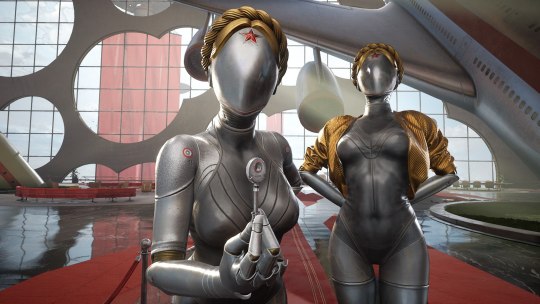

February 22, 2023
Atomic Heart (2023)
#atomic heart#vg#vgs#my screens#game screenshots#screenshot#video game#video games#gaming#video game photography#virtual photography#science fiction#sci fi and fantasy#soviet aesthetic#soviet#soviet union#russia aesthetic#russian aesthetic#russian#russia#pc gaming#pc games#aestethic#robots
30 notes
·
View notes
Text

Stalker (1979) - dir. Andrei Tarkovsky
#andrei tarkovsky#stalker#soviet cinema#science fiction#scifi#cinema#surrealist cinema#arthouse cinema#movie scenes#movie gifs#film gifs#cinematography
137 notes
·
View notes
Photo


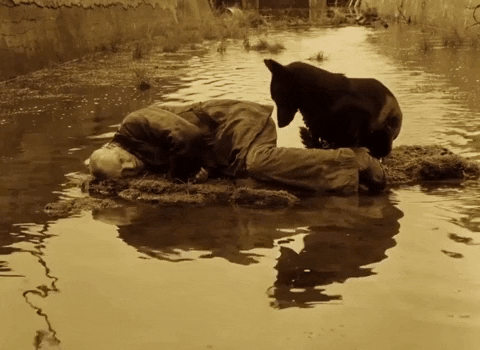
Сталкер [Stalker] (1979) directed by Andrei Tarkovsky
#Сталкер [Stalker] (1979)#Stalker#1979#Soviet science fiction art film#70's#70s#andrei tarkovsky#science fiction art film#my gif#my edit#gif#gifs#melancholy
577 notes
·
View notes